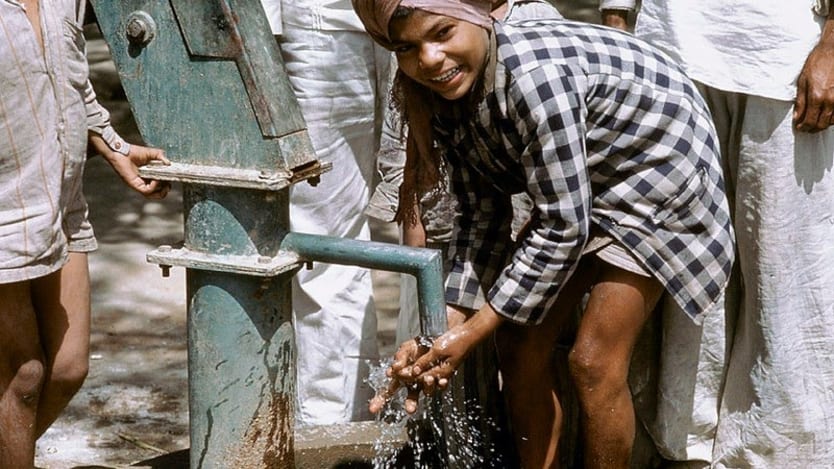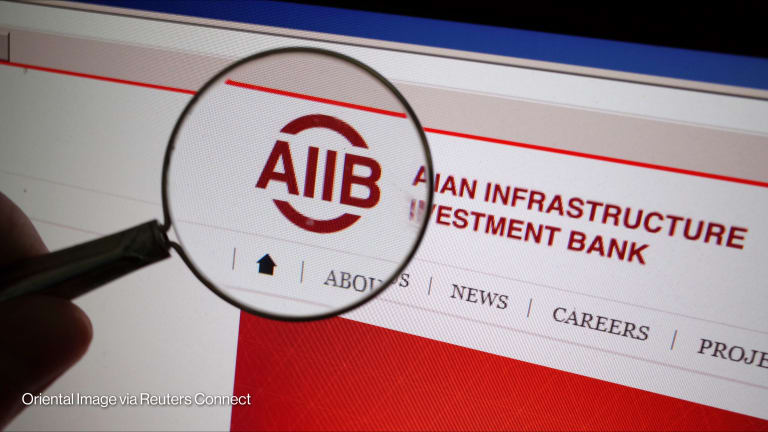
On the tail of a long-delayed reform process mired with transparency challenges and a lack of consultation, the World Bank has a much-needed opportunity to rebuild trust in its accountability system.
World Bank finally approves Inspection Panel reforms after 2-year standoff
The World Bank's board of directors has signed off on a series of major reforms to improve accountability.
In a partnership with the government of India on a $1 billion water scheme intended to increase access to piped water in rural areas, the bank is charged with conducting a new consultation process for the scheme, which affected communities say has destroyed sacred spaces and trampled on the rights of Indigenous peoples. Now, these communities are calling on the bank to take three steps that would demonstrate a meaningful commitment to accountability — and prevent further undermining of public confidence in the bank.
The Rural Water Supply and Sanitation Project for Low Income States has been fraught from the start in two villages in the state of Jharkhand. In Giddhijhopri, a water treatment plant is being built on a hilltop where villagers have for generations buried and cremated their dead, worshipped at a sacred grove, and accessed medicinal plants. Meanwhile, in Sarjamda Purana Basti, a water storage tower was built over the memorial site of three martyrs.
In late 2018, Indigenous communities from the Santhal and Ho tribes filed complaints to the World Bank’s accountability office, the Inspection Panel, calling for construction of the project to cease. The complaints cite breaches of bank policies on Indigenous peoples, environmental assessment, and physical cultural resources. They also cite violations of Indian law, as the villages enjoy special Indigenous self-governance protections requiring that decisions affecting common community resources be taken by a “gram sabha” — a general assembly of all the adults of a village.
The communities have documented that valid gram sabha consent was not obtained; in fact, the communities have no desire for piped water and worry the project will pollute the clean water sources they have conserved for generations. They are calling on the World Bank to dismantle the unwanted structures from their villages and move them to villages where piped water is desired.
The bank’s response to the community complaints conceded a litany of violations — including weaknesses in project design, consultations, and environmental and social assessments, as well as a failure to trigger its physical cultural resources policy. With the panel’s investigation complete, the bank is required to consult with communities on an action plan to address violations.
Given the water scheme’s record of trampling on communities’ rights, this new consultation offers a much-needed chance for the bank to build trust at the local level and show a meaningful commitment to accountability. The bank should lead by example and hold itself to the same standard of “free, prior, and informed consultation” with Indigenous communities that it applied to recipients of bank financing. While the consultations have been postponed due to the COVID-19 pandemic, the communities are calling on the bank to operationalize that standard through three actionable steps:
1. Immediately halt construction. The bank must not allow construction of a project to forge ahead in the face of noncompliance undermining development outcomes for communities, which would defeat the purpose of the Inspection Panel. Continued construction of the project also maintains a coercive environment, rather than a space where communities can speak freely.
2. Allow communities’ advisers and legal counsel to participate. The power imbalance between Indigenous communities and the bank is unmistakable. Communities must navigate a technical, complex process, often in a foreign language, and are only privy to a fleeting viewing of the panel’s investigation report, which is made public after the bank’s board of directors approves the action plan. Meanwhile, bank management has unrestricted access to the report and a swathe of resources, technical experts, and lawyers.
The bank should allow communities’ chosen advisers and legal counsel to participate so that communities are informed and can engage on a more equal footing. The optics alone of the bank excluding Indigenous communities’ legal counsel would be troubling and indicative of an inherently unfair process.
3. Share the draft action plan in writing. To ensure communities are informed, the bank should provide them ample time to understand and discuss the draft action plan within their gram sabha. Communities have been transparent with the bank in sharing their demands, and the bank should reciprocate.
The panel and board of directors will be among the many closely watching this consultation process; the panel has the power to report on the adequacy of consultations, and the board can compel bank management to improve its action plans. With the bank’s accountability reforms mired in nontransparency, this is more than a consultation — it is an investment in rebuilding the bank’s credibility on its accountability system and social license to operate.






